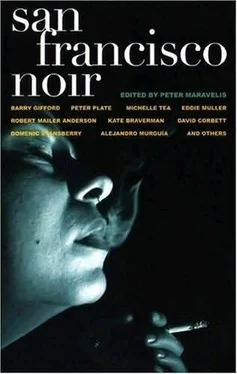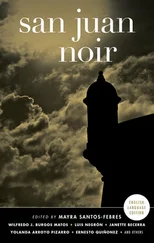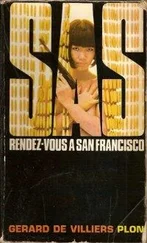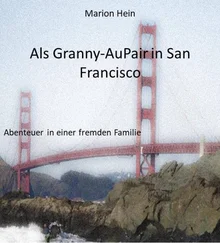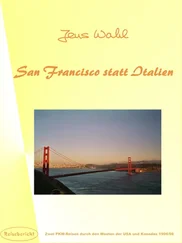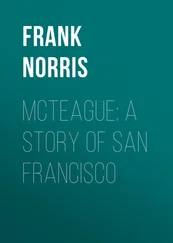A minor hubbub went up when their guide remarked in fluid Queen’s English that they had entered Chinese airspace. Out the window, Michael could see the coastline of the continent, marked by a few small fires here and there. It was happening. It was one thing to take cues from translated texts that wore the dry air of the exotic and esoteric, another to be confronted with a glimpse of a world of real lives and a landmass that, reaching across impassable stretches of time and space, had bore the near totality of human civilization. The idea of that history, rolling back from the shoreline he was now tracing through the dark, was incomprehensible. All that made such a thought tolerable was the counterforce of the equally impossible fact that the most radical social revolution the world had ever known was taking place here too. Michael had spent a lifetime in exile from everything. For the first time, he felt as if he had come home.
They touched down at Hung Chiao International Airport in the dead of night. Michael picked up the luggage he’d packed for himself, but not the suitcase he was given in Vancouver. The streets of Shanghai, one of the world’s most populous cities, former Whore of the Orient, Paris of the East, as seen from the backseat of a Chinese government sedan, were pitch dark.
They were put up in a hotel room. The next day Ariel went out for a few hours, but Michael was forced to stay the whole time in the sparse, narrow room. Most of those hours were spent catching up with his jet lag. A rotation of chain-smoking young men in the same kind of blue jackets Francis wore stood watch outside the door. They didn’t speak English. Every time Michael opened it and asked if he could go out, the response was the same sheepish smile and bout of mute head shaking and hand waving.
Around 3 in the afternoon, he was staring out the window when he saw, miraculously, three white people walk by. He tried to get their attention by banging on the window and yelling, but they didn’t hear him, or acted as if they didn’t. He tried to see where they were headed, but they quickly disappeared from view.
That evening they were put on the train and spent the night in an isolated car. They arrived in Peking by morning. They were put in another hotel room.
They spent most of day two cooped up in the hotel room together, with Ariel being called out for a few hours in midmorning.
When Ariel came back, he was not any more forthcoming about whatever he was doing, or what was going on, than he was about anything else. But like almost everyone else they had met on this trip so far, he had a case of nerves.
It was apparent they were being handled very carefully. So far, every time they had been met by someone, picked up, or taken around, the atmosphere was tense. No one looked directly at anyone or anything. The passing off of the Americans from one handler to another was an especially serious affair. Their sponsors tended to be young men, and occasionally women, dressed in identical blue suits, although there were a few seniors here and there. So far everyone they encountered either spoke fluent English or none at all. They all smoked constantly. People were only grudgingly friendly. They ground their teeth when they smiled and were otherwise businesslike. Too businesslike for Michael’s taste. There was something flinty in their behavior; with any misstep in the complex operation going on, Michael felt he (and Ariel?) would be sacrificed. Michael recognized some of the m.o.: They tended to travel in pairs in which the partners clearly did not like each other. As with Ariel and himself, they were there to keep an eye on each other as much as on their charges.
Admittedly he hadn’t seen much of China so far besides the interior of cars, trains, and hotel rooms, but the whole country seemed on edge. In September, the Minister of Defense, Lin Piao, had died in a plane crash in Mongolia, while trying to flee the country. Michael didn’t know Lin had failed to execute the “571 Plot,” an attempt on the life of Mao Tse-tung while aboard his special train. Nor could Michael have known-it would have peeved him if he had-that his journey to China was preceded by that of Henry Kissinger, who had made a secret trip in July to prepare the way for Nixon’s planned visit the following year.
While Michael and Ariel told each other that their sponsors were being overcautious-after all, they weren’t here to cause any trouble-Michael understood the danger was real. The secrecy was for their own protection. What if one of them got out and fell into the hands of one faction or the other, and something happened? Somebody could make a big deal over it. And what if something were made to happen?
What if they had already fallen into the hands of the Chou group, Ariel’s group?
Thoughts like this occupied him while he waited for Ariel to return from a second, afternoon summoning. It wasn’t pleasant, wondering whether Ariel was plotting against him, while he was kept in a hotel room, a sitting duck.
He went over again in his mind what would happen when they returned to Vancouver. It was his understanding that the money was to come to both of them at the same time. Everything had been prepared, he had been told between Seattle and Vancouver, to ensure that no one had a particular advantage in seizing it. A clear chain of pickups and handoffs would occur after they received it. Who would be in a certain place at a certain time. Who would hand the money to whom. If the right people weren’t in the right place at the right time, they were not to hand off the money. Instead, there was a backup handoff plan they were to go to.
Michael understood his role once the money landed in their hands. No one was to pry Ariel away from him for any length of time, and he was to keep anyone from stealing it. There were people within the organization who might try to steal it from Michael, and both Ariel and he knew that. To avoid anyone trying to engineer a setup, each team only knew who they were getting from and giving to. No one knew the entire chain, where the money would eventually wind up. Michael supposed that the people on Ariel’s side might try to kill the people on his side when the money was given over. A balance in the number of men on each team was meant to ensure that wouldn’t happen. Michael supposed one or more people might switch teams, or that Ariel’s people might have killed his people by the time he arrived at the handoff point. If that happened, if it was only him against the others and he was outnumbered, then, Michael decided, he wasn’t going to fight. Then they would kill him, or maybe something would happen right there on the spot. Michael had traveled for four days with Ariel. Despite some testy moments, they had gotten along. He didn’t like to think Ariel might kill him or that he might have to kill Ariel. They didn’t teach you this stuff at Princeton. This was what it was like getting into the movement. Trouble was real trouble, and it came real quick.
It was all very strange. He was in China.
To take his mind off its current depressing trajectory, he tried focusing on the environment around him. The room they were given couldn’t be considered a cell, but it wasn’t exactly luxurious either. It was like much of what he’d seen of the entire country itself. There did not seem to be one item that was anything other than absolutely essential. Two beds, with two layers of sheets, one slightly heavier than the other. Each of them had been issued a thin hand towel, about one foot wide by two feet long, that was to be used for the duration of their stay. There was a light. No phone. No pen or paper. No ashtray, but cigarette burns in the carpet. Toilet paper, of sorts, was brought in once a day. Somehow their hosts were able to calculate exactly what amount was just enough.
Читать дальше
